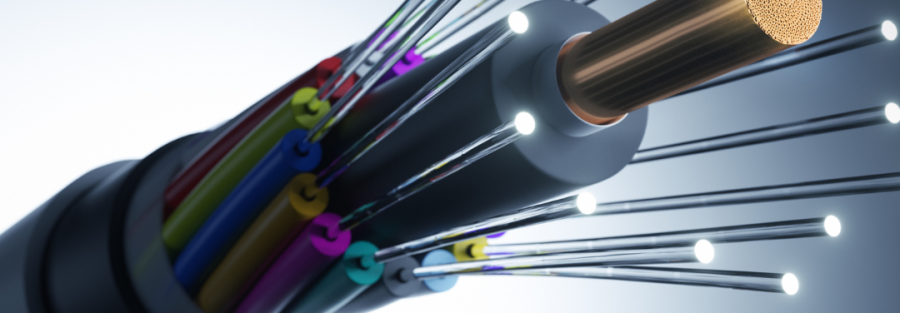In the digital age, the backbone of business efficiency is connectivity. With the increasing demand for faster and more reliable internet, fiber optic technology has emerged as a transformative force in the business world. This cutting-edge technology offers unparalleled advantages over traditional copper lines, including significantly higher speeds, greater bandwidth, and more reliable connections, all of which are essential for modern businesses.
Unmatched Speed and Bandwidth
Fiber optic technology transmits data at the speed of light, the fastest speed possible. Businesses that switch to fiber optics can expect download and upload speeds hundreds of times faster than those provided by conventional broadband. This speed is crucial for handling daily operations that involve large amounts of data, such as transferring large files, streaming high-quality video conferences, and accessing cloud-based applications without latency.
Enhanced Reliability
Fiber optics are less susceptible to weather conditions and electromagnetic interference from nearby electrical equipment than traditional copper cables. This results in a remarkably stable internet connection that businesses can rely on, minimizing downtime and maximizing productivity. The robust nature of fiber also means it is less likely to need repairs, which further enhances its reliability and reduces maintenance costs over time.
Scalability and Future-Proofing
As businesses grow, so too do their data needs. Fiber optic technology is highly scalable, which means that it can easily accommodate increased demands without requiring a complete overhaul of the existing infrastructure. Additionally, fiber networks are considered “future-proof” because the technology’s capacity far exceeds today’s internet speed requirements, ensuring that the system will not become obsolete as new and more demanding applications emerge.
Security Features
The importance of cybersecurity cannot be overstated, and fiber optics offer superior security features compared to traditional wired connections. It is incredibly difficult to tap into a fiber optic cable without being detected, which provides businesses with an added layer of security. This makes fiber optics an ideal choice for industries that handle sensitive information, such as financial services, healthcare, and government entities.
Economic Impact
Implementing fiber optic technology can have a positive impact on a business’s bottom line. While the initial installation might be more costly than traditional copper cables, the long-term savings are significant. Reduced downtime, fewer maintenance issues, and lower operating costs all contribute to a strong return on investment. Moreover, the increased efficiency and reliability can lead to improved customer satisfaction and loyalty, which are critical components of business success.
The transformative impact of fiber optic technology on businesses is clear. With its superior speed, reliability, scalability, security, and cost-efficiency, fiber optics are not just a technology of the future but a fundamental business necessity today. As more businesses realize the critical role that high-speed and dependable internet plays in their success, the shift to fiber optic technology will likely accelerate, paving the way for more innovative and efficient business practices.
Incorporating fiber optics is more than an upgrade—it’s a crucial step towards future-proofing your business in a world where digital capabilities are bound to determine market leaders.

